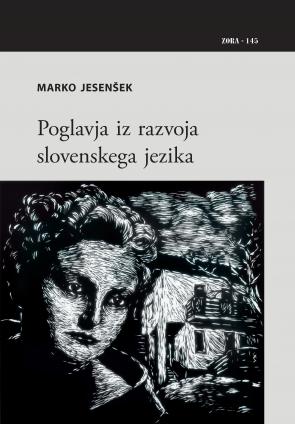Poglavja iz razvoja slovenskega jezika
Keywords:
history of the Slovene literary language, provincial literary variants, Czech and Croatian influences, Slovene language in the Austrian Empire, in the time of Rudolf Maister, in the assembly of the first Yugoslavia, the May Declaration, the Prague linguistic circle, Janez Bleiweis, Margareta Puhar, Ivan Cankar, Matija Murko, Ada Vidovič Muha, Jože ToporišičSynopsis
Chapters in the Development of the Slovene Language.The monograph presents important milestones in the development of the Slovene language in 18 chapters. The framework of these reflections is (1) Toporišič's periodisation of the history of the Slovene language and (2) his reflections on the modern Slovene language, while the “elaborated history” consists of discussions on the eminence of the Slovene language from the 16th to the 21st century: contact (3) with Czech linguistics and an initiative for a new historical grammar of the Slovene language and with the Croatian language, i.e. (4) Slovene-Croatian language contacts in Protestantism from the 16th to the 18th century and (5) analysis of Frankopan's translation fragment/manuscript Jarne bogati based on the proposal of Moliere’s George Dandin; (6) the songbook of the Tinje manuscript and the linguistic conditions until the middle of the 19th century. (7) when provincial book versions of the Slovene language coexisted on the Slovene territory within the Austrian Empire; (8) the standardisation of the Slovene literary norm in the mid-19th century and the great influence that Bleiweis’ Novice had; the efforts to form the Slovene language of instruction at the time of (9) Margareta Puhar and (10) Cankar’s renewal of the standard Slovene language at the turn of the 19th and 20th centuries. and (11) Maister's influence on the establishment of Slovene as an official language in the first Yugoslavia; (12) after the First World War there were important issues of our language, Slovene even became an official language in the Belgrade Assembly, but the Slovene politicians renounced this acquisition for political tactics; (13) In the field of Slavic literary and cultural history, literary folklore, ethnology, linguistics and Slavic studies in general, Matija Murko broke political boundaries and drew attention to the unified European (university) space and predicted a united Europe; (14) After the Second World War, Slovene was an official language in the SFRY, but the situation deteriorated considerably in 1983 with the so-called common cores and the realisation of the linguistic ideas of Yugoslavism; (15) “Koroščeva” (1917) and “Pavčkova” (1989) are presented, which proclaimed an independent Slovenia and Slovene as the state and (later) equal official language of the European Union; In 2021 we would need a third May Declaration, which would stop the Anglicisation efforts in Slovenian public life and the introduction of trivial English as a language of instruction at Slovenian universities; (17) presents the influence of the Prague Linguistic Circle on Slovene linguistics in the last third of the 20th century and the “view of language” of two leading Slovene structuralist linguists, (17) Ada Vidovič Muha (18) Jože Toporišič, who always emphasised that to be the language of instruction in the Slovenian educational system.
Downloads






